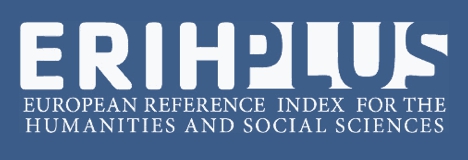The didactic track game as a geography teaching strategy
Abstract
The education deals with challenges such as the need to develop more dynamic and participative classes, facing a world with so much technological information available, the expositives classes are not attractive to the students. In this scenario it was formulated a didactic game in track format, a game very used by the teenagers, aiming to analyze the impact of this resource in the geography classes. The theme chosen to produce the games was the geological time and the Brazilian morphoclimatic domains. It was presented to the students that didn’t studied the theme before and to others that already did, considering in this way to be able to compare the results and evaluate the viability. After participation in the game, they showed receptivity and argumented that this strategy is a potential means for teachers to make their classes participative and viability ways to the concretization of the learning.
References
ASBAHR; Flávia da Silva Ferreira A pesquisa sobre a atividade pedagógica: contribuições da teoria da atividade Revista Brasileira de Educação, nº 29, p. 108-118, maio/agosto, Scielo Brasil, Rio de Janeiro - RJ 2005.
CUNHA, Nylse Helena da Silva. Brinquedo, desafio e descoberta. Rio de Janeiro: FAE. 1988.
FREIRA, Paulo. Pedagogia da autonomia. São Paulo: Paz e Terra, 1996.
GOMES, R. R.; FRIEDRICH, M. A Contribuição dos jogos didáticos na aprendizagem de conteúdos de Ciências e Biologia. In: EREBIO,1, Rio de Janeiro, 2001, Anais, Rio de Janeiro, 2001, p.389-92.
MORATORI, Patrick Barbosa Por que utilizar jogos educativos no processo de ensino aprendizagem? Instituto de Matemática - Núcleo de Computação Eletrônica Informática na Educação - Universidade Federal do Rio De Janeiro, Rio de Janeiro, dezembro, 2003. Disponível em:
MIRANDA, Simão. No Fascínio do jogo, a alegria de aprender. In: Ciência Hoje, v.28, 2001 p. 64-66.
RIBEIRO, Alyson Fernando Alves; SILVA, Daniel Almeida da; e FRANCA, Rafael Rodrigues Oficinas em Geografia: práticas e metodologias para um ensino dinâmico e criativo Revista de Extensão Universitária da UFS, São Cristovão – SE, n. 2 – 2013.
SANTOS, Rita de Cássia Evangelista e CHIAPETTI; Rita Jaqueline Nogueira Uma investigação sobre o uso das diversas linguagens no ensino de Geografia: uma interface teoria e prática Revista Geografia Ensino & Pesquisa, Volume 15, número 3, set/dez. 2011. ISSN 2236-4994
STRAPASON, Lisie Pippi Reis, O uso de jogos como estratégia de ensino e aprendizagem da Matemática no 1º ano do Ensino Médio Dissertação de mestrado profissionalizante do UNIFRA – Centro Universitário Franciscano de Santa Maria, Santa Maria RS, 2011.
TAVARES, G. I. A.; SILVA, J. W. F.; ALMEIDA, K. R. A Importância das Oficinas Pedagógicas no Ensino de Geografia: Uma Proposta do Pibid na Escola Estadual Ana Júlia de Mousinho. Anais do Congresso Nacional de Educação (CONEDU), 2014, Campina Grande – PB.
VASCONCELLOS, Celso dos Santos Aula expositiva: ainda existe espaço para ela? In: Coordenação do trabalho pedagógico: do projeto político-pedagógico ao cotidiano da sala de aula. São Paulo: Libertad editora, 2013. p. 153-168.
ZABALA, Antoni. A prática educativa: como ensinar. Porto Alegre: Artmed, 1998. 13-25 p.

This work is licensed under a Creative Commons Attribution-NonCommercial 4.0 International License.
Policy Proposal for Free Access Journals
Authors who publish in this journal agree to the following terms:
a. Authors retain the copyright and grant the journal the right of first publication, with the work simultaneously licensed under the Creative Commons Attribution License which allows the sharing of the work with acknowledgment of the authorship of the work and initial publication in this journal.
b. Authors are authorized to take additional contracts separately, for non-exclusive distribution of the version of the work published in this journal (eg publish in institutional repository or as a book chapter), with acknowledgment of authorship and initial publication in this journal.
c. Authors are allowed and encouraged to publish and distribute their work online (eg in institutional repositories or on their personal page) at any point before or during the editorial process, as this can generate productive changes, as well as increase the impact and The citation of published work (See The Effect of Free Access).





















